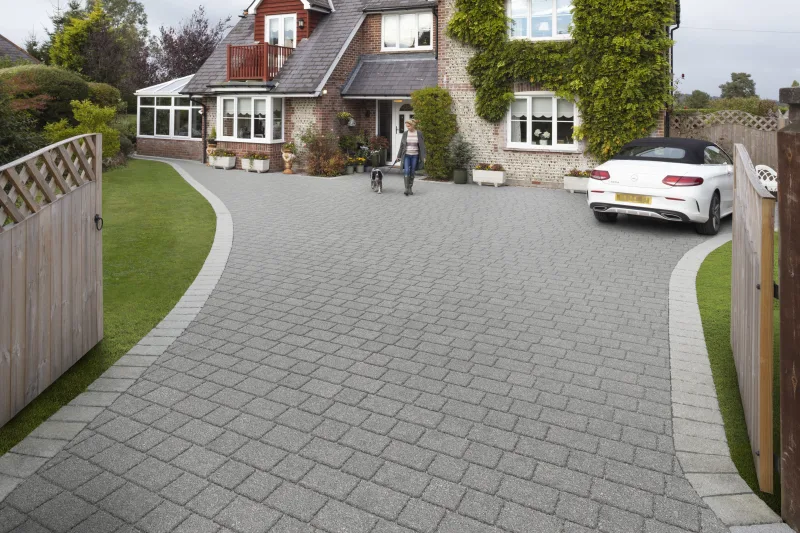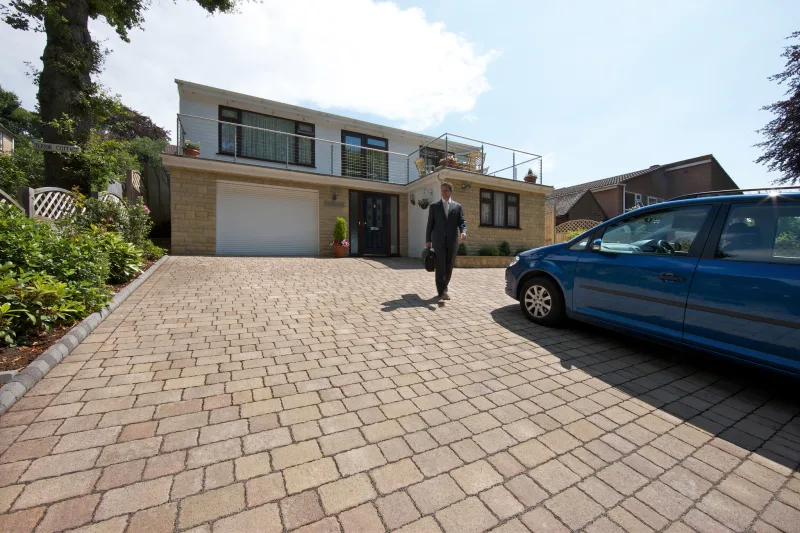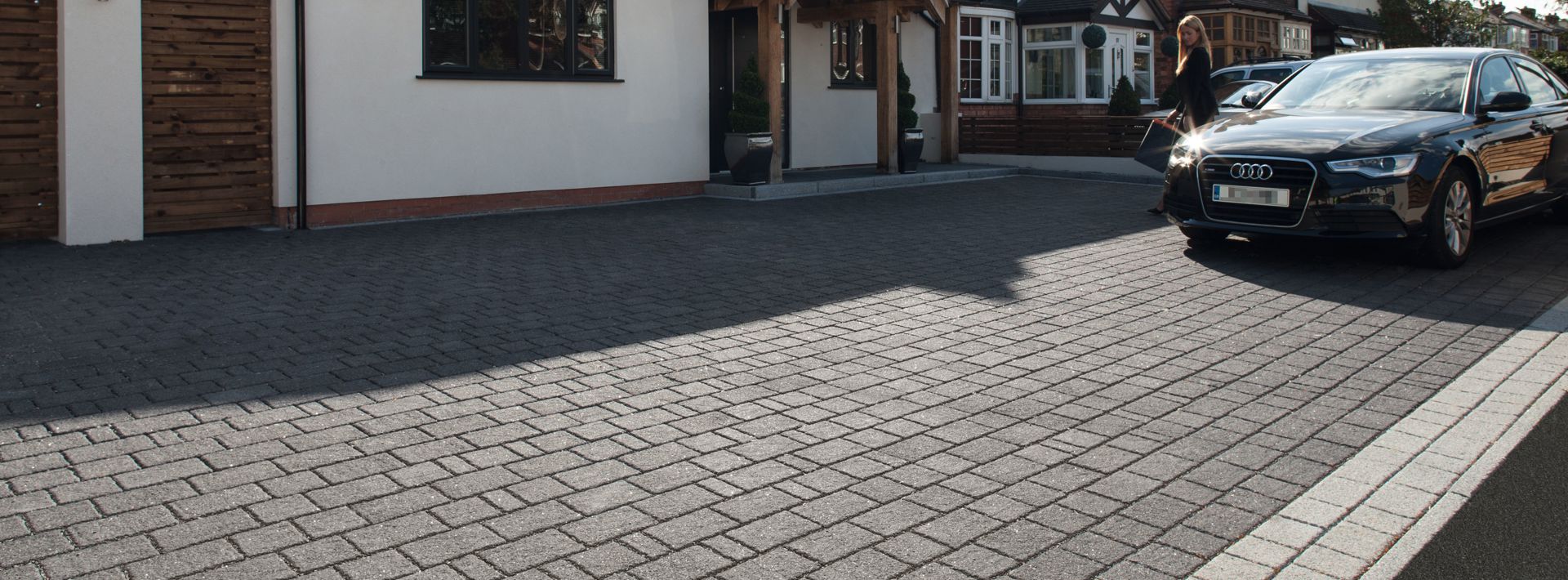Blog
Recently, there have been a number of stories in the media about new legislation, which will “ban paved driveways”. While these stories have a slight link to the truth, the headlines are misleading.
Why do we need driveway legislation?
The issue is about flooding. Hard surfaces (including driveways) stop rainwater soaking into the ground, so instead it flows in large volumes and at high speeds into council-owned drainage systems. We know that rainshowers are becoming longer, more frequent and more intense, so coupled with an increase in the amount of hard paved areas being installed, our drainage systems are struggling to cope. That’s one of the reasons flooding is on the increase.
To combat this, driveway legislation is already in place to stop people from adding to the flooding problem by paving over porous ground in front of their house – but that doesn’t mean that driveways are being banned! The legislation instead advises people who are changing their driveways to use drainage systems which manage the water on their own land, instead of directing it to shared sewers – effectively, using sustainable drainage systems to create eco-friendly driveways that don’t create a flood hazard.
What are the sustainable driveway options?

Drivesett Argent Priora in dark with a light border
There are a number of ways of making sure your driveway is sustainable and more eco-friendly. Most simply, the rainwater can be directed to run off from hard paving into soft planted areas, where it can soak naturally into the ground. All that needs to be done to achieve this is to build a gentle slope on the driveway in the direction the water needs to flow, making sure that the slope falls away from the public pavement or highway.
For an alternative option, a channel drain (like Marshalls Driveline Drain) can be installed along the entrance to a driveway, which intercepts water before it goes onto the road and instead directs it to a “soakaway” within the owner’s land. A soakaway is, quite simply, a hole which fills up with water that soaks away over time. Both of these techniques create acceptable “sustainable driveway” solutions by preventing the surface water runoff from entering the sewer.
However, there’s a much more elegant solution. Permeable block paving looks like any other block-paved surface; it adds real class and kerb appeal to the front of your house. In addition, it’s hard wearing and able to withstand the heaviest loads on the road. Permeable paving is specially designed to allow water to soak through the surface, and into the ground below – therefore preventing rainwater from entering sewers without the need for any soft landscaping, drainage channels or soakaways.
Marshalls Priora is the UKs most popular permeable block paving. It comes in a wide range of different colours, sizes and textures to suit any house – your local Marshalls Register installer will help you to choose the most appropriate style and laying pattern to give you the look you want. However, a Priora permeable paving block has one small but significant difference to a standard paving block; it has extra long nibs placed around the edge which create a space between the blocks when they’re laid. Rainwater passes through these spaces between the blocks and into the sub-base below – and that’s the biggest difference between a permeable driveway and an ordinary one.

Drivesett Tegula Priora in harvest
The sub-base for permeable paving is made up of large, angular stones which lock together to create a stable base. A laying course of smaller angular gravel is laid on top of these stones to create a level bed onto which the blocks can be laid. What’s novel about these materials is that there’s no sand or small particles mixed in them so when they’re compacted, there’s still a large volume of voids between the stones - and it’s these voids which provide the storage for rainwater. In a heavy storm, this sub-base allows rainwater to accumulate in the sub-base even faster than the ground can absorb it, storing it safely out of the way until it soaks naturally into the ground just as it would had the surface not been paved. Effectively, a permeable pavement is an attractive block paved driveway which is laid on top of a structurally robust soakaway.
Get a professional opinion

There’s no single solution to decide the best way to make your new driveway comply with front garden legislation – it depends on a number of factors including the size of the plot, the aesthetic you’re looking for and what you plan to park on your drive. However, despite some of the more alarming headlines, you might have read, driveways aren’t being banned – and it’s clear that permeable paving is a great way to meet legislation and reduce flood risk without having to compromise on the impressive driveway you’ve always wanted.
Our network of Accredited Landscape Contractors and Driveway Installers will be able to help you and provide you with more information when it comes to your driveway. You can enter your postcode here, to find a Marshalls Registered Installer near you.










